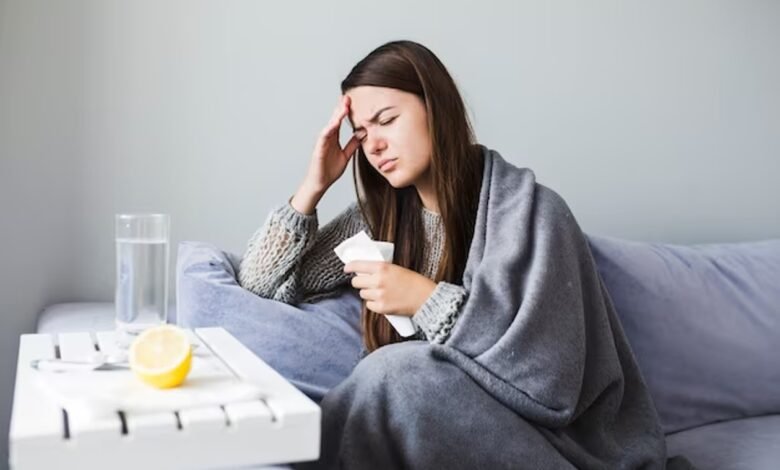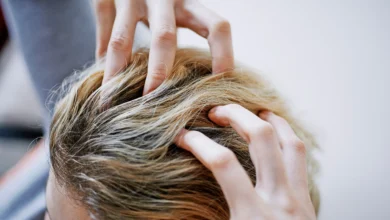7 Proven Ways for Yellow Fever Treatment and Recovery

When it comes to tackling the serious viral illness of Yellow Fever, Yellow Fever treatment and recovery are of paramount importance. This mosquito-borne disease, prevalent in certain regions, can lead to severe symptoms and even fatalities if left untreated. Therefore, understanding the proven methods for treatment and recovery is crucial for anyone affected by this potentially life-threatening condition.
Yellow Fever Treatment and Recovery
The key to successful Yellow Fever treatment lies in prompt medical attention and supportive care. From administering antiviral medications to managing the symptoms, there are a range of approaches that healthcare professionals employ to combat the virus. Beyond medical intervention, there are also practical steps individuals can take to aid their recovery process. In this comprehensive guide, we will explore seven proven ways to treat Yellow Fever and facilitate a smooth road to recovery, ensuring that individuals affected by this illness receive the best possible care and support.
Understanding Yellow Fever
Yellow Fever Treatment: Yellow fever is a viral disease primarily transmitted through the bite of infected mosquitoes, primarily the Aedes aegypti species. This disease is prevalent in tropical and subtropical regions of Africa and South America, where these mosquitoes thrive. It is essential to grasp the key aspects of yellow fever, including its transmission, symptoms, and the impact it can have on individuals and communities.
Transmission
The yellow fever virus belongs to the Flaviviridae family and is primarily transmitted through the bite of infected female mosquitoes. When a mosquito feeds on a person or animal already infected with the virus, it becomes a carrier, capable of transmitting the virus to other individuals through its bites. In areas where yellow fever is endemic, the mosquito serves as a vector, maintaining the virus’s circulation in the population.
Symptoms
Yellow Fever Treatment: The onset of yellow fever can be insidious, often beginning with symptoms that mimic many other illnesses. Initially, individuals may experience flu-like symptoms, such as:
- High fever
- Chills
- Headache
- Muscle and joint pain
These early symptoms can be challenging to distinguish from other common ailments, making it crucial for healthcare providers to consider the possibility of yellow fever in regions where the disease is prevalent.
As the disease progresses, more severe symptoms may manifest. These can include:
- Jaundice (yellowing of the skin and eyes)
- Abdominal pain
- Vomiting, often with blood
- Kidney and liver dysfunction
- Bleeding, which can lead to hemorrhagic fever
Severe cases of yellow fever can result in organ failure and death if not promptly treated.
Read More: Breaking Down the Heat: Unveiling the Mysteries of Fever
Impact
Yellow Fever Treatment: Yellow fever can have a devastating impact on individuals and communities, particularly in regions where vaccination rates are low, and healthcare infrastructure is limited. Outbreaks of yellow fever can strain healthcare systems and lead to a significant loss of life.
Furthermore, the economic impact of yellow fever is substantial. Outbreaks can disrupt trade, tourism, and agricultural activities, affecting the livelihoods of those living in affected areas.
Prevention
Yellow Fever Treatment: Given the serious nature of yellow fever, prevention is of utmost importance. Vaccination against yellow fever is highly effective and provides long-lasting immunity. Travelers to endemic areas should ensure they are vaccinated before their trip and take precautions to avoid mosquito bites.
Early Symptoms and Diagnosis
Yellow Fever Treatment: Recognizing yellow fever’s early symptoms is crucial. Symptoms often start with fever, headache, and muscle pain, making early diagnosis challenging. However, as the disease progresses, more severe symptoms such as jaundice and bleeding can occur. Rapid diagnostic tests are available to confirm the presence of the virus.
Hospitalization and Medical Care
Yellow fever is a severe and potentially life-threatening viral infection, and when someone is diagnosed with the disease, hospitalization becomes a crucial step in the treatment process. Here, we’ll delve into the importance of hospitalization and the medical care required for yellow fever patients.
The Need for Hospitalization
Hospitalization is almost always necessary for individuals with yellow fever. This is because yellow fever can progress rapidly, leading to severe symptoms and complications. Hospitalization serves several critical purposes:
- Monitoring: In a hospital setting, medical professionals can closely monitor the patient’s condition. They can track vital signs, assess organ function, and promptly respond to any changes in the patient’s health.
- Supportive Care: Yellow fever can cause various complications, including liver and kidney damage, bleeding, and shock. Hospitalized patients can receive the necessary supportive care, such as blood transfusions and medications, to manage these complications effectively.
- Isolation: Yellow fever is contagious, especially in the early stages when the virus is present in the patient’s blood. Hospitalization allows for the isolation of infected individuals to prevent the spread of the disease to others.
Medical Interventions
When a patient with yellow fever is hospitalized, they will receive specific medical interventions aimed at treating the disease and managing its symptoms. These interventions may include:
- Intravenous Fluids: Dehydration is a common complication of yellow fever due to symptoms like vomiting and high fever. Intravenous fluids are administered to maintain adequate hydration and support the patient’s circulation.
- Pain and Fever Management: Medications such as acetaminophen may be given to alleviate pain and reduce fever. These drugs help make the patient more comfortable while the body fights the virus.
- Blood Transfusions: In severe cases of yellow fever where bleeding occurs, blood transfusions may be necessary to replace lost blood and clotting factors.
- Treatment of Complications: Yellow fever can lead to organ dysfunction, particularly in the liver and kidneys. Treatment may involve medications and therapies to support these organs’ function.
- Preventive Measures: In some cases, patients may receive treatments to prevent secondary infections or complications. This can include antibiotics or antiviral medications for specific infections.
Recovery and Follow-Up
Yellow Fever Treatment: Recovery from yellow fever can be a lengthy process, and patients may require ongoing medical care even after leaving the hospital. Follow-up appointments with healthcare providers are essential to monitor the patient’s progress, ensure complete recovery, and address any lingering health issues.
Hydration and Rest
Yellow Fever Treatment: Rest and hydration play a vital role in yellow fever recovery. Patients should drink plenty of fluids to prevent dehydration, especially if they experience vomiting or diarrhea. Adequate rest helps the body’s immune system fight the virus effectively.
Nutrition for Recovery
Yellow Fever Treatment: Nutrition is a critical aspect of recovery. Patients should consume a balanced diet rich in vitamins and minerals to support the body’s immune response. Foods like fruits, vegetables, and lean proteins can aid in the healing process.
Medications and Treatments
Yellow Fever Treatment: While there is no specific antiviral medication for yellow fever, supportive treatments can help manage symptoms. Pain relievers, such as acetaminophen, can alleviate fever and discomfort. Patients may also receive medications to control nausea and vomiting.
Preventing Yellow Fever
Yellow Fever Treatment: Prevention is always the best approach. Yellow fever vaccination is highly effective and provides long-lasting immunity. Travelers to endemic areas should ensure they are vaccinated before their trip and take precautions to avoid mosquito bites.
Read More: Best Rheumatoid Arthritis Medications for 2023
Conclusion
Yellow fever is a serious illness that requires prompt medical attention. Understanding the virus, recognizing early symptoms, and seeking medical care are crucial steps in the treatment and recovery process. Additionally, rest, hydration, proper nutrition, and supportive treatments can aid in the recovery journey.
FAQs
Is yellow fever treatment available in all countries?
Yellow fever treatment is available in many countries where the disease is endemic or poses a risk. However, the quality of care may vary, so it’s essential to seek treatment in a reputable healthcare facility.
Can yellow fever be treated at home?
Yellow fever is a severe illness that typically requires hospitalization and medical care. Home treatment is not recommended for this disease.
Is there a cure for yellow fever?
There is no specific antiviral cure for yellow fever, but supportive treatments can help manage symptoms and improve recovery chances.
How long does it take to recover from yellow fever?
Recovery from yellow fever varies from person to person and depends on the severity of the infection. Some may recover within a few weeks, while others may require a more extended period of rehabilitation.
Can yellow fever be prevented through vaccination?
Yes, yellow fever can be effectively prevented through vaccination. It provides long-lasting immunity and is highly recommended for travelers to endemic areas.







